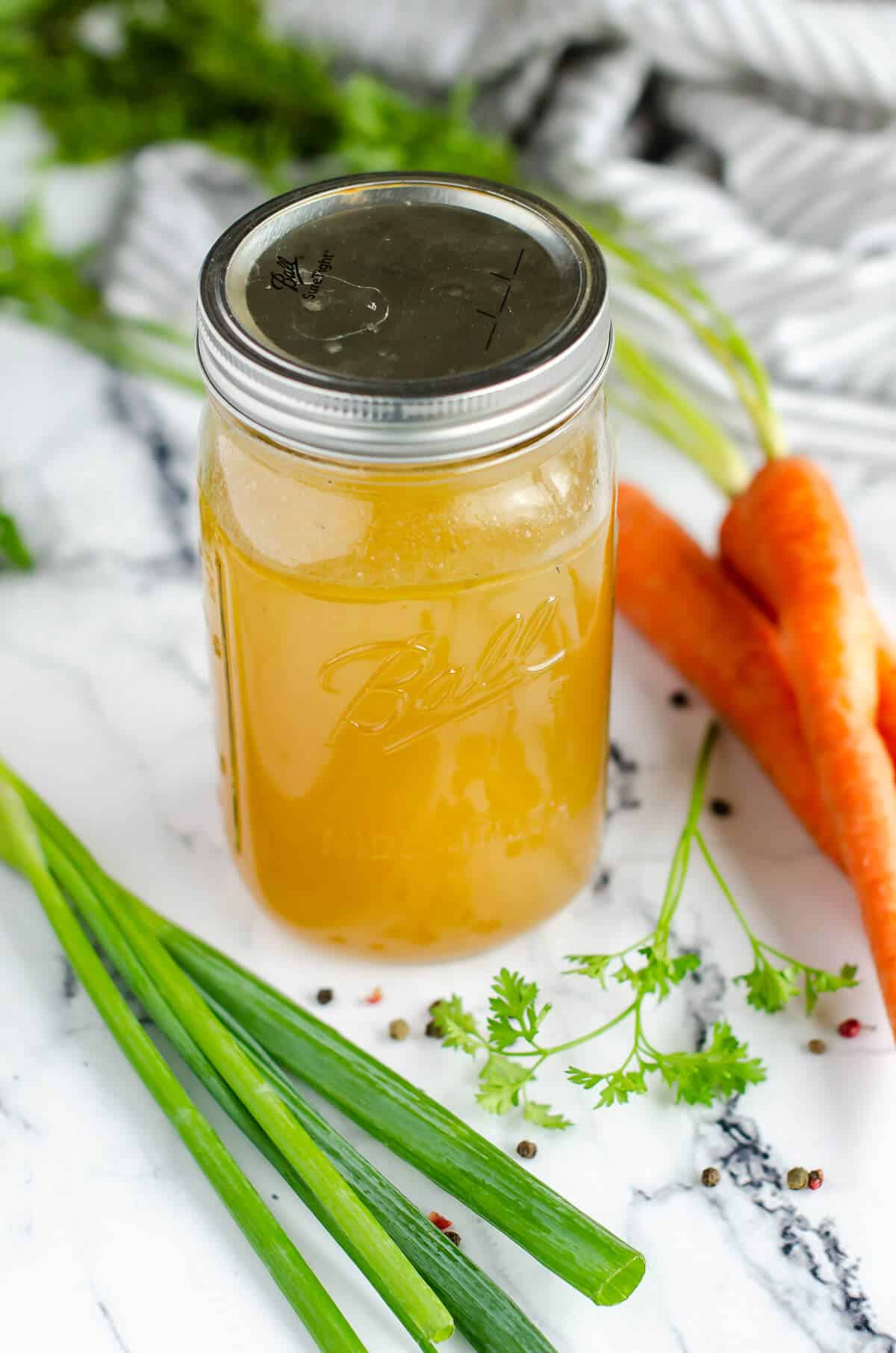The aSignificance of Healthy And Balanced Food: Why Bone Broth Is a Wonderful Selection for Infants
When it concerns your infant's nourishment, every option matters. Bone broth attracts attention as a nutrient-dense option, supplying necessary nutrients that support growth and growth. Its abundant structure not only aids digestion however also increases the immune system. Comprehending exactly how to incorporate this flexible food right into your infant's diet can set the phase for healthy and balanced eating behaviors. What are the finest ways to introduce bone broth to your little one?
Nutritional Advantages of Bone Broth for Newborns
When you present bone broth to your baby's diet, you're supplying a nutrient-dense food that uses many wellness benefits. Packed with crucial vitamins and minerals, bone broth has calcium, magnesium, and phosphorus, which support your infant's expanding bones. It's additionally abundant in collagen, assisting in the development of healthy skin, joints, and connective cells.
Additionally, bone broth is an excellent source of amino acids like glycine and proline, which play a significant role in overall development and muscle growth. These nutrients help promote a strong immune system, establishing a strong foundation for your infant's health and wellness.
Furthermore, bone broth is simple to absorb, making it a gentle alternative for your child. By including this wholesome food into their meals, you're guaranteeing they get necessary nutrients required for their total wellness. Go ahead and make bone broth a staple in your baby's diet regimen!
Exactly How Bone Broth Supports Food Digestion
Bone broth is packed with essential nutrients that can really profit your child's food digestion. It advertises intestine health and wellness and assists with nutrient absorption, making it a great addition to their diet plan. By including bone broth, you're setting the phase for a healthier digestive system.
Nutrient-Rich Make-up
One of the most nutrient-rich foods you can present to your infant's diet plan is bone broth, which is packed with necessary minerals and amino acids that support healthy digestion. Rich in collagen, bone broth helps reinforce your infant's gut cellular lining, making it less complicated for their body to soak up nutrients. It offers jelly, which assists in damaging down proteins, promoting smoother food digestion. Furthermore, the broth consists of crucial electrolytes like potassium and magnesium, ensuring your infant remains hydrated and stabilized. The amino acids, such as glycine and proline, play an essential duty in repairing cells and supporting general health (chicken bone broth). By integrating bone broth right into your infant's dishes, you're providing a wholesome food that supports their digestive system efficiently.
Promotes Gut Health
As you introduce bone broth right into your infant's diet regimen, you'll discover it not only nurtures however also promotes digestive tract health and wellness efficiently. Rich in gelatin, bone broth helps relieve the digestive system, decreasing inflammation and supporting a healthy gut lining. In addition, the amino acids located in bone broth, such as glycine, help in food digestion and can aid prevent usual belly troubles.
Aids Nutrient Absorption
Introducing bone broth not just supports gut health and wellness but likewise plays a substantial role in helping vitamins and mineral absorption. When you give your baby bone broth, you're supplying a rich source of minerals and amino acids that boost their gastrointestinal processes. The jelly in bone broth aids to calm the digestive tract cellular lining, improving its capability to take in essential nutrients.
Enhancing the Immune System With Bone Broth

By including bone broth right into your child's diet plan, you're offering an all-natural resource of nourishment that promotes wellness. Think about making bone broth a staple in your infant's meals, as it can play an important duty in their immune health and wellness and growth.
Easy Ways to Incorporate Bone Broth Into Child's Diet regimen
Integrating bone broth right into your child's diet regimen can be simple and satisfying. Beginning by mixing a tiny quantity of bone broth into pureed vegetables or fruits. This includes flavor and nutrients without overwhelming your youngster. You can also utilize bone broth as a base for soups or stews that you get ready for the household, guaranteeing your baby obtains a preference of scrumptious, healthy and balanced meals.
If your infant delights in grains, consider cooking rice or quinoa in bone broth rather of water for extra sustenance. These methods will certainly help your child reap the benefits of bone broth effortlessly!
Homemade vs. Store-Bought Bone Broth: What to Pick
Which is far better for your child: homemade or store-bought bone broth? Self-made bone broth offers you complete control over the ingredients. You can select premium bones, natural veggies, and natural herbs, guaranteeing your infant obtains the most nutrients without additives or chemicals. Plus, making it at home can be a satisfying experience, enabling you to bond with your child while preparing wholesome food.
On the various other hand, store-bought choices are convenient and conserve you time. They typically contain preservatives and might not match the deepness of flavor and nutrition you obtain from homemade broth. If you choose store-bought, seek brands that are organic and totally free from ingredients.
Inevitably, if you have the moment and resources, homemade bone broth is the exceptional option for your child's wellness. If you're brief promptly, pick a high quality store-bought option as a backup.
Age-Appropriate Bone Broth Serving Tips
As your infant expands, it is very important to tailor bone broth offering suggestions to their developing stage. For babies around six months, begin with a couple of spoonfuls of watered down bone broth. Mix it with water or bust milk to make it simpler for them to digest. As they come to be accustomed to flavors, you can gradually present thicker broth by lowering the dilution.
Once your child gets to around go to these guys eight months, you can serve it warm in a sippy mug or include it to soft foods like purees. By the time your youngster is around a years of age, consider offering bone broth as a standalone drink or blending it into soups and stews. Simply make certain to keep the broth low in salt. Always keep track of for any kind of reactions, and consult your doctor if you have issues regarding introducing brand-new foods. Appreciate this nourishing enhancement to your child's diet!
Various Other Healthy Foods to Combine With Bone Broth for Infants
When you're aiming to boost the nutritional value of bone broth for your infant, take into consideration coupling it with nutrient-dense vegetables like carrots and spinach. Whole grain choices, such as quinoa or brownish rice, can likewise include texture and fiber. Additionally, incorporating healthy protein sources like shredded chicken or lentils will certainly complete the dish perfectly.

Nutrient-Dense Vegetables
Nutrient-dense veggies are a superb enhancement to bone broth for infants, boosting both flavor and nutrition. Incorporating veggies like carrots, spinach, and wonderful potatoes can boost the minerals and vitamin content of your broth. Carrots supply beta-carotene for healthy vision, while spinach is loaded with iron and calcium, crucial for growth. Sweet potatoes add all-natural sweetness and are abundant in fiber, aiding digestion.
You can conveniently mix these vegetables right into the broth or serve them as soft, cooked items together with it. This not only presents brand-new tastes yet also urges your child to delight in a variety of nutrients. By combining nutrient-dense veggies with bone broth, you're laying the structure for a healthy diet plan right from the beginning.
Entire Grain Options

Healthy Healthy Protein Resources
Bone broth sets incredibly with various healthy and balanced protein sources, further improving your baby's diet regimen. Try adding soft, prepared lentils; they're nutrient-dense and packed with protein. You can additionally blend in shredded chicken or turkey, which are simple for your little one to absorb. informative post If you're seeking plant-based options, consider mashed tofu or pureed chickpeas-- both provide excellent healthy protein without frustrating flavors. Eggs, when introduced safely, are an additional excellent selection; they're functional and loaded with nutrients. Inevitably, mixing in some well-cooked quinoa can add a wonderful appearance and added healthy protein. By integrating these healthy and balanced protein sources with bone broth, you're offering your infant a well balanced, beneficial meal that supports their growth and development.
Frequently Asked Inquiries
Can Bone Broth Cause Allergic Reactions in Newborns?
Yes, bone broth can trigger sensitive reactions in babies, especially if they're delicate to certain ingredients. Constantly consult your pediatrician prior to introducing new foods and monitor for any kind of signs of allergic reactions after feeding.
How Should Bone Broth Be Saved for Babies?
You ought to store bone broth in airtight containers, either in the refrigerator for up to a week or in the fridge freezer for up to three months. bone important site broth for pregnancy. Constantly thaw it correctly before serving to your infant
Is It Safe to Offer Bone Broth to Premature Infants?
It's important to consult your pediatrician before presenting bone broth to premature infants. They'll examine your baby's certain health and wellness needs and assure it's safe, considering their one-of-a-kind nutritional demands and developing stage. Always prioritize expert advice.
What Are the Indicators of Intolerance to Bone Broth in Children?
When presenting bone broth, watch for indications like fussiness, breakout, diarrhea, or throwing up. If your child reveals any of these responses, it's ideal to get in touch with a doctor prior to remaining to provide it.
Can Bone Broth Be Made Use Of as a Meal Replacement for Newborns?
No, you should not make use of bone broth as a dish replacement for infants. It does not have necessary nutrients required for their growth. Rather, incorporate it into their diet regimen alongside well balanced dishes for added nutrients and taste.